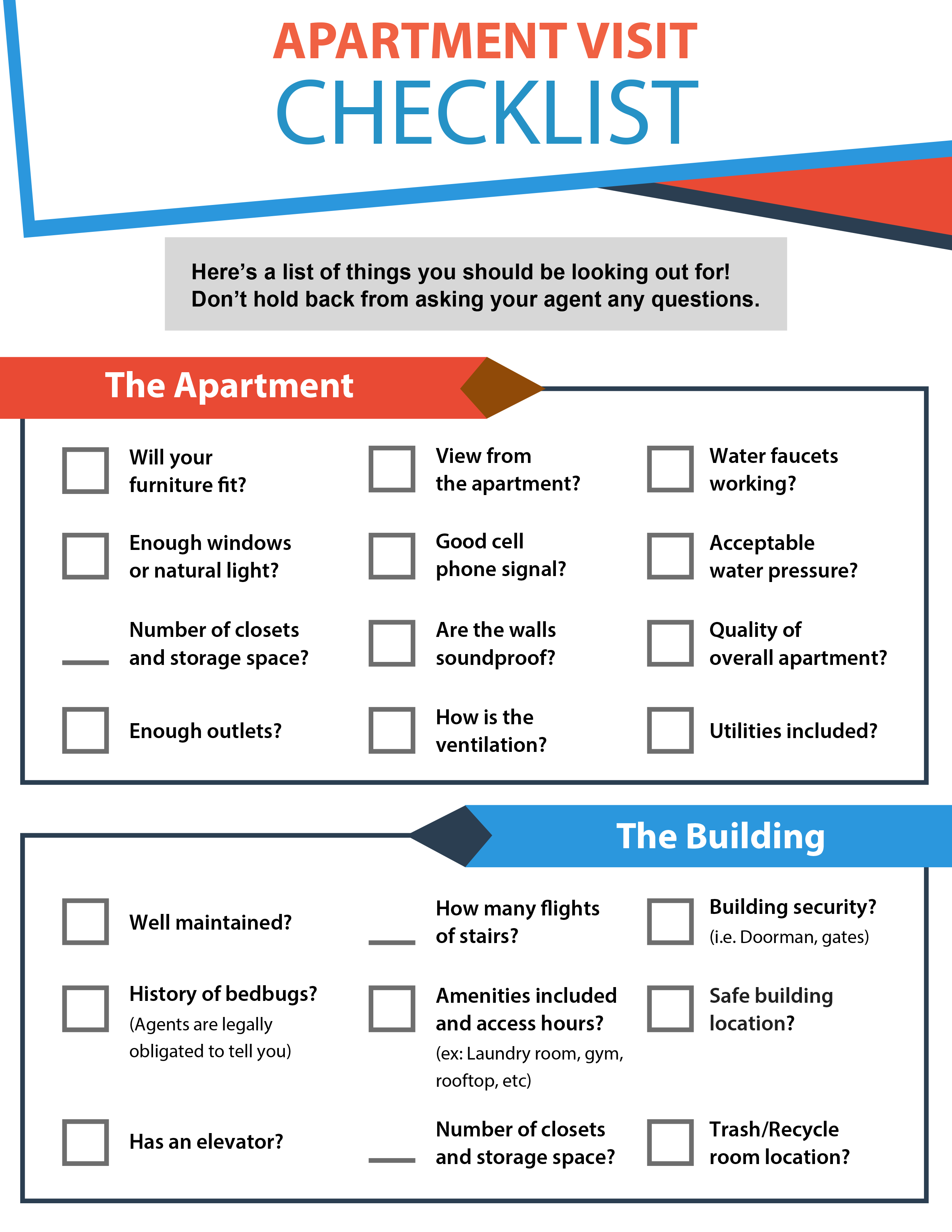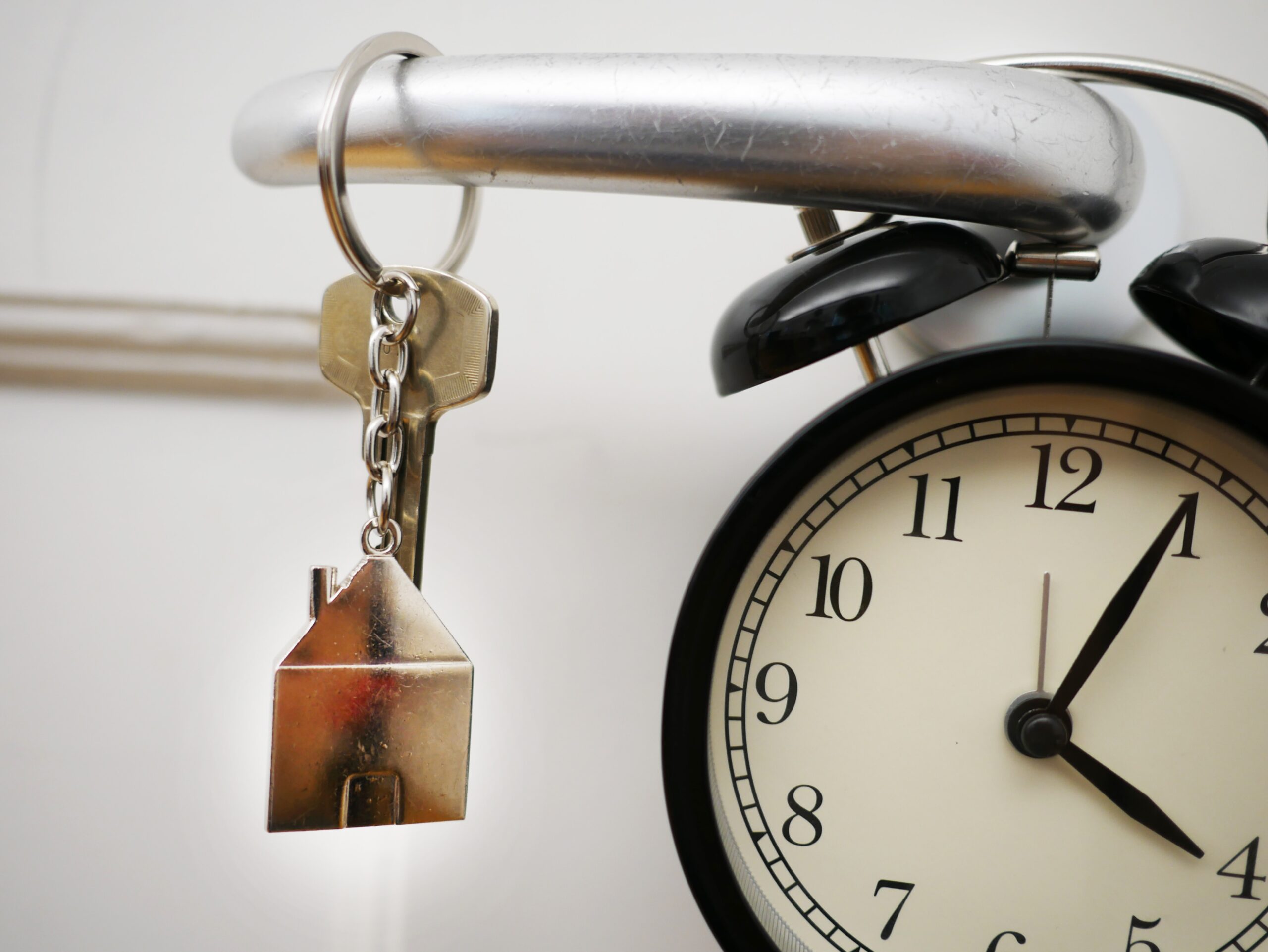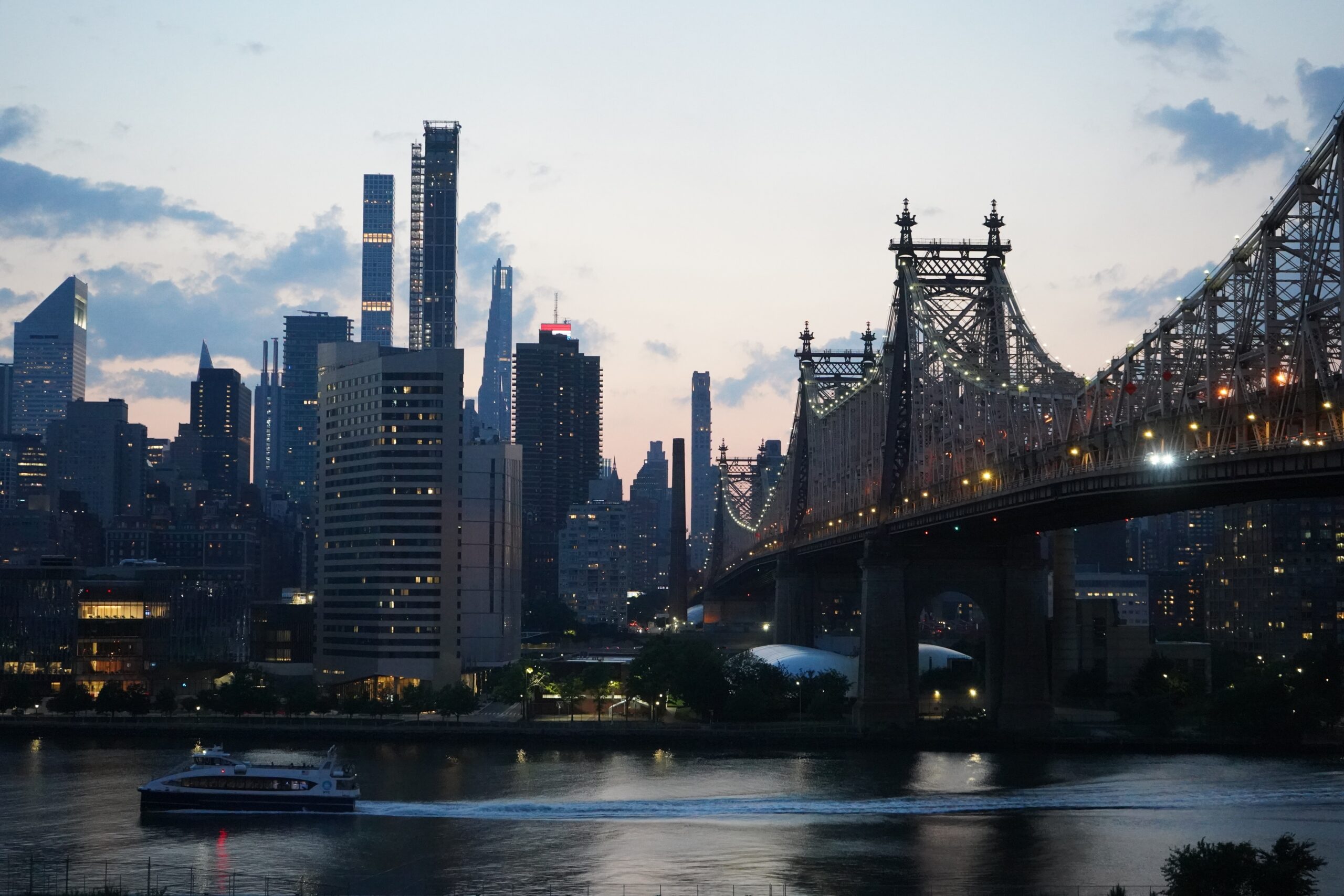After looking at apartment listings online and finding several appealing places, you will schedule an appointment to view an apartment. This is your chance to view the space in person and determine if you want to move forward with the application process.
What to expect before the tour
When you reach out to an agent to schedule a tour, the agent will meet you at the apartment, their office, or in a public spot near the apartment, like a coffee shop. Most apartment showings occur during the day, in the early evening, or on weekends. Some management companies and apartment buildings will not let agents schedule tours during low-traffic hours. Prepare to spend 30 to 40 minutes attending a showing, though some take much less, depending on how you feel about the apartment. If an agent plans to show you several apartments, you should block off several hours.
Either before the appointment or before they physically bring you into the apartment, the agent will have the you sign the Fee Agreement and Agency Disclosure Form. Once you sign the forms, the agent will escort you through the building and into the apartment. Some agents may send the forms through a virtual document signing program before the appointment.
If you plan to live with at least one other roommate, you may decide to attend the showing as a group or individually. The roommate who attends a showing can take measurements, photos, and videos of the space to share with others. If you are renting with several roommates, you may each take several showings individually, then come together as a group to report on the units you each visit.
Typically, you should plan to dedicate a few days over a week to view apartments. The rental market moves quickly, especially during the summer months, and some apartments may rent to someone else in the time that you view, decide to apply, and submit an application.
Potential Issues
You may run into the following issues when trying to view an apartment:
- Key Issues: While professional agents and landlords typically coordinate the details before a renter shows up, sometimes an agent may have the incorrect key, someone is not at the apartment to let renters in, etc. In this case, you can decide if you want to wait for a solution to the problem or more on. You may be able to view the apartment on another day if you are determined to see it.
- Busy Management Office: Depending on when you decide to view an apartment, there may be other renters viewing the unit, and you will have to wait to view the apartment. You can use the waiting period to strike up a good conversation with the doorman or residents of the building to find out more information.
What happens during the apartment tour
When the agent unlocks the door and allows you inside, the agent will take one of two approaches. They will either escort you through the unit to the highlight features and amenities, or they will let you explore for yourself and answer any questions you ask.
After hearing the agent’s initial pitch, you will have time to go back through the rooms and look through the details. Take this time to ask any clarifying questions and ensure that your needs will be met if you rent the apartment. You should consider the following:

Tips for viewing the apartment
If you view several apartments within a short period of time, you may have trouble remembering the exact details of each unit. Additionally, if you’re renting for the first time, you may not be aware of the important factors to consider when viewing an apartment. Take the following steps during a tour:
- Take notes: Whether you have an organized sheet or jot down details on your phone, make sure to record all important information that influences your decision-making process.
- Record videos and take photos: this is especially important if you have roommates who are not attending the showing. Capture each room, the lobby, and the outside area to give the other roommates the full picture. If current tenants live in the apartment when you take the tour, you should ask the agent if you’re allowed to take photos and videos.
- Take measurements: If the agent or landlord did not provide a floorplan with measurements of each room, you should bring a measuring tape and record the length and width of bedrooms and common areas.
- Check the cabinets under sinks: Cockroaches and bugs are a common nuisance in apartments and commonly occupy dark and damp areas. Check under the cabinets and if there are any bug traps or dead roaches. An apartment with a strong presence of pests may not be an ideal home.
- Turn on the sinks and shower: Test water pressure by turning on the bathroom shower, sinks, etc. Many renters care about strong water pressure but forget to test it during a showing.
Virtual tours
Virtual touring opportunities are popular as they allow renters to easily view the space before submitting an application. Some renters may sign a lease before stepping into an apartment if they like what they see in a video tour. However, some renters may use a video tour as a qualifying step in their search process and still conduct an in-person tour to ensure the building, neighborhood, and unit are up to their standards.
There are several types of virtual viewing opportunities. Some agents may record a video walk-through and upload it directly to a listing, allowing renters to see all aspects of the apartment before inquiring and communicating with the agent. Other agents may use technologies like Matterport, where renters can step through the apartment and drag the screen around to view all angles. Finally, some renters and agents may schedule a video tour like they would a normal tour, but only the agent physically arrives at the unit and gets on a live video call with the renter, walking them through the space.
Virtual tours grew in popularity during the height of the COVID-19 pandemic and continue to prove popular for renters. Those who do not already live in New York City find tours helpful, and agents who include preliminary virtual tour options in their listing save themselves and renters time and energy. On RentHop, you can search for units that offer virtual tours.
Additional tips for first-time NYC renters
If you’re moving to New York City for the first time, you may not know what qualities and amenities to prioritize in your apartment search. While you should also refer to the Features & Amenities section of this guide, you can consider the following:
- You may not want to live on the first floor of the building. A first-floor apartment poses a higher security risk to renters as it is easier for someone to enter the unit. First-floor apartments in the city should have a gate across the windows to prevent someone from climbing in. Additionally, a first-floor unit means that area is more susceptible to bugs and pests.
- Does a business occupy the first floor of the building? A restaurant may attract more pests and create a loud atmosphere depending on the style and hours of operation. You should also consider which businesses occupy the surrounding areas as well for general noise pollution awareness.
- Where is the bedroom in the apartment? Does the bedroom face the street, the back, or another apartment building? A bedroom with windows directly on the street will be more nosy than one at the back of the building.
- If the unit or building does not have laundry facilities, how far away is the laundromat? Consider that some laundromats are also more expensive than others and have different restrictions on payment. Some spots still only allow customers to pay with quarters, while some facilities may have newly installed card readers.
- What is the package situation in the building? While someone who lives in a doorman building will receive their packages directly from their doorman, package theft can be an issue in older buildings without security or doormen. If you move into a building with many apartments and no security, your packages may get stolen from time to time, especially during holiday seasons.
- While amenities like communal or private outdoor space (gardens, roof decks, etc.) may provide use during the summer months, you can only comfortably utilize those spaces for a portion of the year. It may not be worth it to prioritize looking for an apartment with this kind of feature, especially if you’re trying to cut costs and save on rent.









